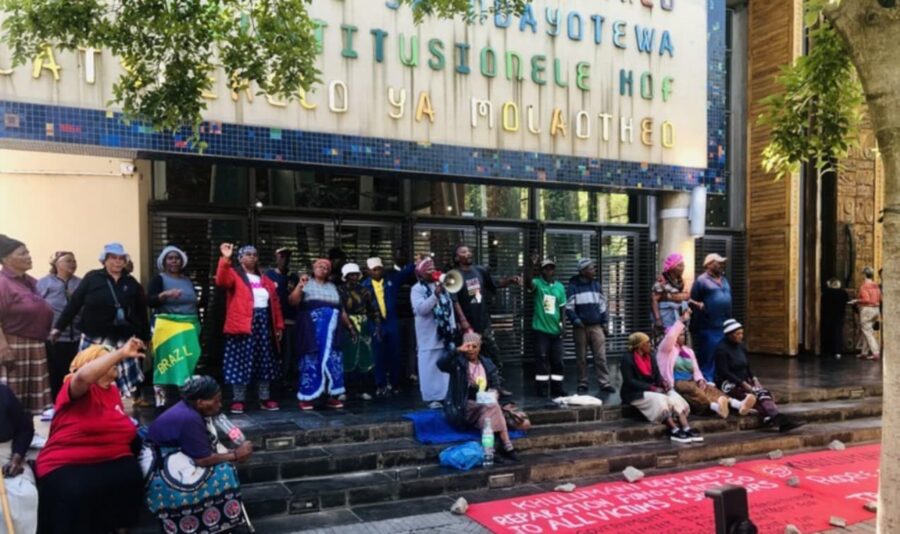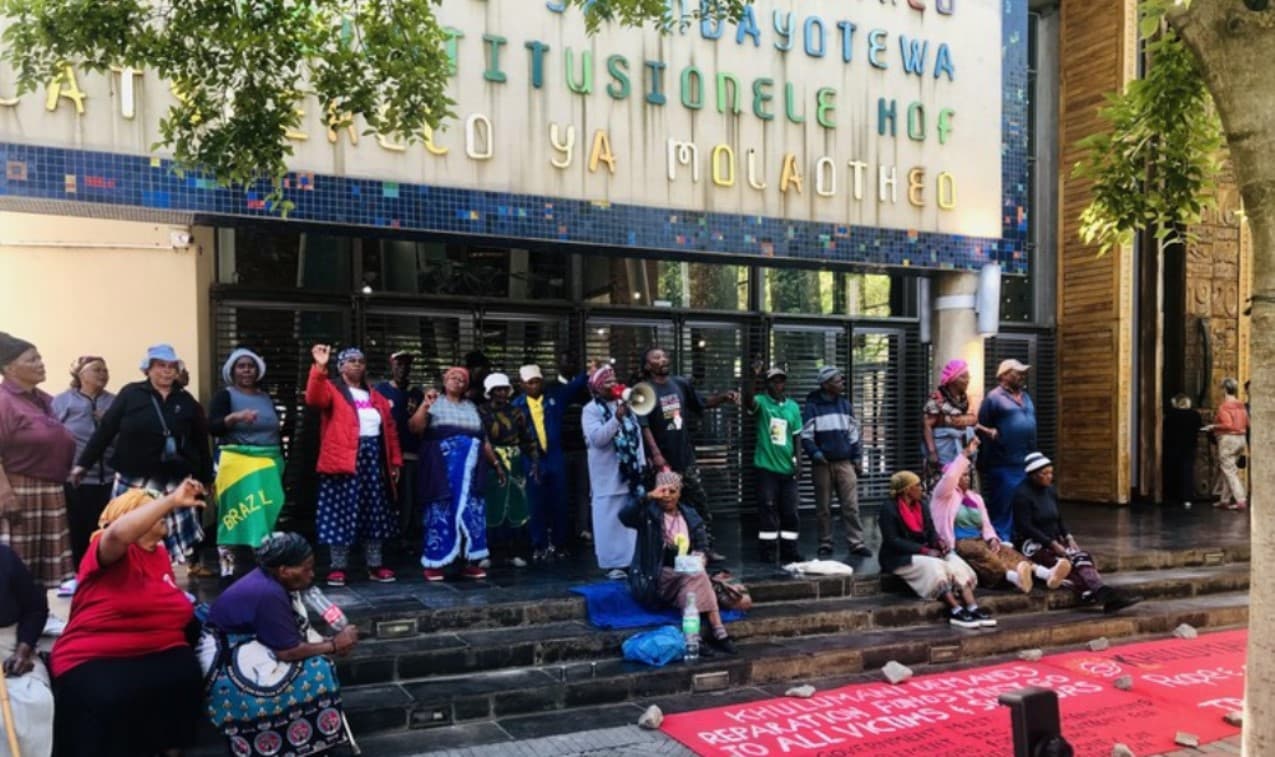
Pensioners sleep outside Jhb Constitutional Court
They say they are owed apartheid reparations

About 50 elderly people have been sleeping outside the Constitutional Court in Johannesburg since 2 November, demanding reparations for crimes committed during apartheid.
- Dozens of elderly people have been sleeping outside the Constitutional Court in Johannesburg.
- They are members of the Khulumani Support Group and the Galela Campaign, who are demanding that they be paid reparations for damages suffered during apartheid.
- The Department of Justice says the process of payment of individual reparations, set up in 1995 through the Promotion of National Unity and Reconciliation Act, has been finalised and the protesters do not qualify.
- But the protesters want the process opened up again.
The group, who are members of the Khulumani Support Group and the Galela Campaign, say the government has not addressed their concerns. Some say they sustained injuries in confrontations with apartheid police and still have bullets in their bodies. Others say they lost loved ones or were chased from their homes.
The protests have been going on intermittently for years.
The Truth and Reconciliation Commission (TRC), set up in 1995 through the Promotion of National Unity and Reconciliation Act, was tasked with identifying and verifying victims qualifying to get reparations. The TRC report included a list of 21,000 people. This was later cut down to 17,000 people eligible for reparations. According to the President’s Fund, which is mandated to pay out reparations, everyone who applied and was found eligible received the R30,000 grant, except for 13 people, seven of whom are confirmed to be living overseas.
The Department of Justice considers the process finalised, but the protesters want it to be opened up again.
They say there is money in the President’s Fund which should be paid out.
The Fund is supposed to make reparations in six categories:
- a once-off individual grant to victims of apartheid;
- educational support for victims and their families,;
- housing provision for victims;
- financial assistance with exhumations and reburials of deceased apartheid victims;
- access to healthcare; and
- rehabilitation of communities severely affected by apartheid.
But the Fund’s investments have been growing much faster than its disbursements and as of March 2022, there was just under R1.9-billion in the Fund.
Judy Ann Seidman from Khulumani told GroundUp that promises by the Ministry of Justice and the Premier’s office to meet the group had not been kept. The protesters want an urgent meeting.
“The number of members is slowly decreasing because some have died because they are sick and elderly. All we want is for the government to hear our call in the name of our democracy and pay what rightfully belongs to us. As we speak the money continues to lie in the President’s Fund to the amount of R2-billion. What more do we need to do for our government to hear us?” Seidman said.
Members of Khulumani and Galela Campaign say they will not vote in the 2024 elections if reparations are not paid.
Seventy-year-old Jabulile Sithole from Kahlehong, who has been sleeping at the court, said she developed an eye problem when she was tear-gassed. From 2019 she has been on the waiting list for an operation at a government hospital, she says. “A private hospital asked for R25,000 to do the operation quicker. I would go there if only the government would pay us, but nothing seems to be happening.”
Sixty-one-year-old Thabo Shabangu said: “We want to know what the government is doing with our money… For the last 29 years the government has been dodging us.” He said he would go on sleeping outside the court until reparations were paid.
Sithole and Shabangu both said their names were not on the TRC list because they had heard about the reparations process too late.
Spokesperson for the Department of Justice Chrispin Phiri said most of the people from the group who had come forward did not meet the criteria stipulated by the TRC. “Reparations are specific only for TRC victims. If you had gone to the Truth and Reconciliation Commission and given them your story, you would have received a number. Some people didn’t have a TRC number, which is the only way we could identify if someone is a TRC victim or not.”
Phiri said there were plans to have a meeting with the group to see how the department could help.
But, he said, “Our mandate as a department is limited to people who are victims of gross human rights violations and specified in law.”
Phiri said those who did not qualify for the once-off payment could still benefit from community rehabilitation programs.
ALSO READ: Pro-Palestine protesters clash with police in Cape Town
He said as of 30 September 2023, just under R805-million had been paid out to beneficiaries identified by the TRC; R53.2-million on interim reparations; R497.7-million on final reparations; nearly R5-million on exhumations and reburials; R129.2-million on higher education and training; and R120.1-million on basic education.
In terms of housing benefits, he said regulations are yet to be finalised by the Department of Human Settlements.
